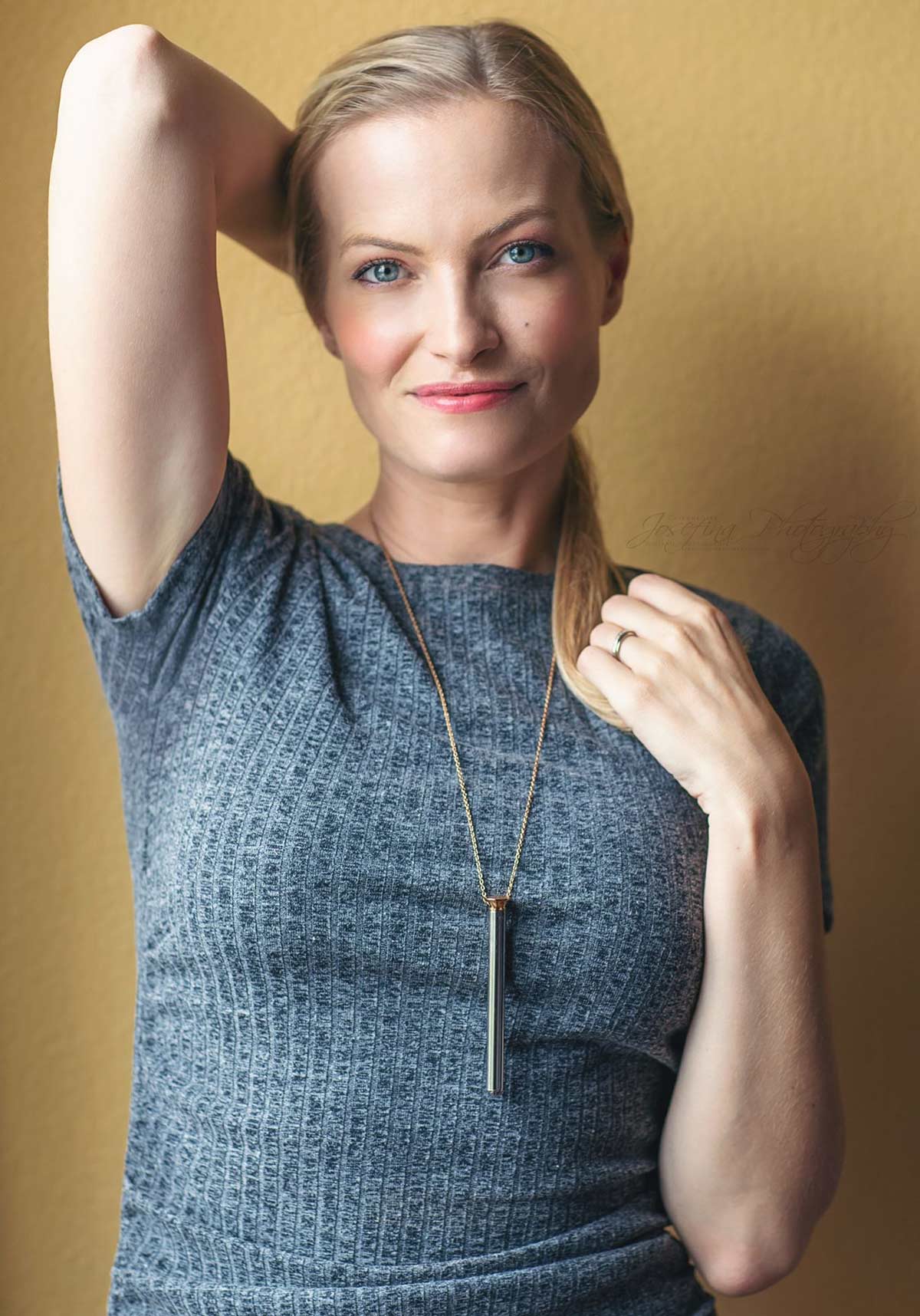August McLaughlin, creator of Girl Boner Radio, on what sexual empowerment means in 2021
Recent years as well as the repercussions of COVID-19 highlighted many important conversations, one being the supreme importance of self care. The act of which is mostly related to what happens behind closed doors, but drastically affects everything that happens in our public lives too. Screen Shot spoke to health and sexuality writer, host and creator of Girl Boner (books and radio), about not only what sexual empowerment truly means in 2021, but how it ripples throughout our every day lives and relationships.
When did your interest in exploring sexuality first start and what made you want to start writing and talking so openly about it?
I was in my late teens and had returned to the US from Paris, where I’d been working in the fashion industry, to go through treatment for an eating disorder. The treatment was intense, so I opted to take some college courses for a chance to think about literally anything else.
I was sitting in a psychology class one day when the professor said, “Today we’re going to talk about sex.” I had one of those huge, lightbulb moments because it struck me that I had never really talked about sex, not even with the person I’d been having it with.
That realisation spurred a ton of curiosity in me, as well as some worthy anger: why hadn’t I talked openly about sex or sexuality? That led me down a rabbit hole, not only into my own journey but into sex education and societal messaging around these topics. It set a fire under me that blazes to this day.
In hindsight, I now see that that was the day I stopped wanting to starve myself. I still had a lot of healing to do, but I developed a newfound respect and sense of compassion for my body and self that I’d been missing.
Once I had a blog, I knew I wanted to explore sexual empowerment. That met with increasing awareness and growth in my own journey and finally the time felt right to launch Girl Boner into the world. It started out as a blog series, then the podcast, which has become my main focus.
The term ‘Girl Boner’ stems from my childhood experience in that awkward sex ed class so many of us have, in which “male pleasure” was alluded to, and any positive equivalent for gals was never mentioned. We primarily learned daunting information about cramps and blood and periods. As soon as I heard the word “boner” on the schoolyard, I wondered, “What about girl boners?” It took me years to figure that one out.
View this post on Instagram
Why do you think its so important for women especially to talk about sex and sexual health so freely?
Women have been silenced for too long, in terms of sex and sexual health, and we still face so many barriers. Sexuality remains taboo in many cultures and populations, but even more so for women, LGBTQIA+ folks and people with vulvas.
That silencing, from factors such as societal messages about our supposed “purity” and “slut”- shaming to misleading ideas about gender and sexuality, lead to profound problems. It’s one reason we’re more prone to things like low self-esteem, heightened stress, body image challenges, eating disorders, anxiety and depression.
Do you think that there is a disparity between how men talk about these topics compared to women?
Yes! Cultural messages and pressures around sex lead many men to talk about and perceive sex more in terms of conquest and without much emotional sensitivity. On the flip side, many women feel shame around mentioning sex at all. And if we’re really into sex or wish to talk about it, we may run the risk of being considered “slutty.” Things have improved somewhat in this area and there are many exceptions, including plenty of women who feel “prudish” for not feeling especially explorative around sex these days, but we still have a long way to go.
How do you think that sexuality empowers women?
When we feel comfortable talking about sexuality and our related needs, we’re better able to lead full, authentic, gratifying lives.
Sexual empowerment isn’t about having as much sex as possible or as much “wild” or “kinky” sex as possible. It’s about owning our sexuality, however we define it, and respecting others’ choices as well. In these ways, sexual empowerment fosters compassion for ourselves and others, and honestly makes way for a better world.
What drove you to write Girl Boner and what feedback did you receive for it?
Since I’m a writer, the book was my first idea once I decided to shift gears from general health writing to focus on sexual empowerment. I knew I needed to prove there was an audience first, though, so I started with the blog series.
From there, it took about six years before the book found a home and it was published. Looking back, I’m grateful it took so long, because Girl Boner evolved into so much more before it released. I hadn’t anticipated starting a podcast on the topic, and that’s become my passion and where I feel like I can make the most impact.

I’m so grateful that Girl Boner and the derivative workbook, Girl Boner Journal, have both been very well received. It’s almost always difficult to get your book into the hands of many, and even more challenging when you write about a stigmatized topic such as sex, but those who’ve read Girl Boner or used the journal have responded as I’ve hoped they would. Readers have shared that they feel more understood, less alone and more empowered in and knowledgeable about their sexuality.
Of course, no book is ideal for everyone, but the people I wrote the book for seem to appreciate it and I couldn’t ask for more than that.
How do you think that women can overcome sexual shame?
Shame can’t survive in total silence, so once we’re aware that we’re dealing with sexual shame (the first important step), talking to someone about it can be tremendously powerful.
Writing about sexual shame can be deeply healing too, which is one reason I often recommend journaling for sexual self-discovery. When we’re writing in a private space, we don’t have to worry about others’ judgement. And words and ideas may flow out that we hadn’t even let ourselves face, those beliefs that sort of hide beneath the surface.
Other helpful steps may include sex therapy, if you have access, practicing patience with yourself and reminding yourself that you are far from alone. Nearly everyone experiences some amount of sexual shame at some point and it’s sadly prevalent among women.
I also often recommend prioritising personal pleasure and solo play (aka masturbation), too. When we explore our sexuality solo, we can learn so much about our body and what feels good on our own terms and in our own time. Doing so helps us reclaim full ownership of our pleasure, which we’re born having, but too often lose to some degree.
What does it mean to self-define yourself sexually, and do you think it’s important for women to do so?
I think it’s important to gain understanding of our own sexuality, whether we find particular labels helpful or not. Many folks find labels, such as bi or pansexual or queer or kinky, helpful for finding partner(s) who are into and/or deeply respectful of the same. Many other people prefer no labels at all. Both choices are valid.
Being able to identify our sexual values and desires can be impactful from a personal empowerment standpoint and for any relationships we cultivate, so I think that’s important. If we don’t know what we enjoy or wish for in our lives and relationships, we’re less likely to experience that fulfillment. It would be like going to college and dabbling in this and that and just seeing what happens, or having someone else choose a bunch of random courses for you, versus eventually choosing a major and minor or speciality.
Our sexual values and desires may shift over time—they often do—and that’s perfectly fine, too. So staying in touch with our sexuality and checking in with ourselves along the way can be important.
What attitudes do you hope to see more women having in the future?
I hope we’ll all feel more compassionate toward ourselves and more accepting of our sexuality, however we experience or define it. All of that fosters so much freedom and growth throughout our lives, not just sexually. When we embrace our sexuality, we move through the world differently. We have better relationships. We feel more alive and more true to ourselves.
One really beautiful thing about that kind of self-compassion and awareness is that it really brings out similar care for others. For example, I’d love to see more embracement of trans and non-binary folks and for all women to recognize that trans women truly are women, too.
I’d also love for people of all genders to understand that women and men are not “Mars and Venus.” We tend to be socialized and treated differently, but we aren’t inherently alien to one another. We’re far more alike, and still individually unique, than many folks realise. Sexual desires, sex toys, “high” versus “low” libido—none of those are gendered. It’s perfectly okay to connect more with “masculine”or “feminine” traits and to express and enjoy your sexuality as you see fit.
What would be your number one tip to other women looking to empower themselves sexually?
Prioritise sensual pleasure in your life. Make it a priority the way you would any other important practice. Use that time for solo play, reading or listening to erotica, taking a sudsy bath or whatever you enjoy that involves your own pleasure and taps into multiple senses.
My podcast listeners might laugh when they hear this because I’m pretty sure I’ve recommended masturbation for basically everything, but it really is so powerful! If you enjoy sex or wish to enjoy it more, there is little better way to get into touch with your body, reduce stress and improve partnered sex, too.
View this post on Instagram





